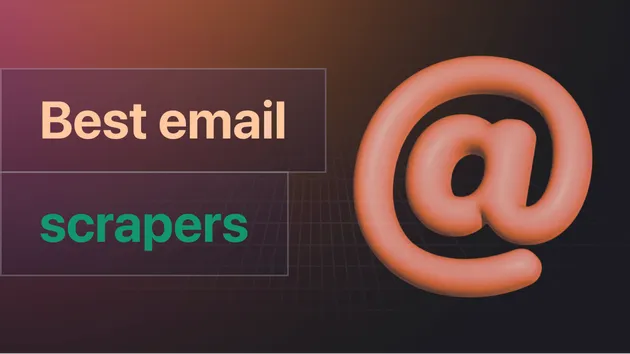Free Email Domain Scraper - Extract Emails From Any Website
Pricing
$6.00 / 1,000 emails
Free Email Domain Scraper - Extract Emails From Any Website
Extract Emails From Any Website. No monthly costs. Contact discovery, employing a two-pass search strategy, advanced filtering (remove generic and malformed emails), user-agent rotation, and configurable limits per domain. Ideal for lead generation and market research.
5.0 (1)
Pricing
$6.00 / 1,000 emails
3
Total users
14
Monthly users
14
Runs succeeded
>99%
Last modified
2 days ago
You can access the Free Email Domain Scraper - Extract Emails From Any Website programmatically from your own applications by using the Apify API. You can also choose the language preference from below. To use the Apify API, you’ll need an Apify account and your API token, found in Integrations settings in Apify Console.
{ "mcpServers": { "apify": { "command": "npx", "args": [ "mcp-remote", "https://mcp.apify.com/sse?actors=shoppingresult/free-email-domain-scraper", "--header", "Authorization: Bearer <YOUR_API_TOKEN>" ] } }}Configure MCP server with Free Email Domain Scraper - Extract Emails From Any Website
You have a few options for interacting with the MCP server:
Use
mcp.apify.comviamcp-remotefrom your local machine to connect and authenticate using OAuth or an API token (as shown in the JSON configuration above).Set up the connection directly in your MCP client UI by providing the URL
https://mcp.apify.com/sse?actors=shoppingresult/free-email-domain-scraperalong with an API token (or use OAuth).Connect to
mcp.apify.comvia Server-Sent Events (SSE), as shown below:
{ "mcpServers": { "apify": { "type": "sse", "url": "https://mcp.apify.com/sse?actors=shoppingresult/free-email-domain-scraper", "headers": { "Authorization": "Bearer <YOUR_API_TOKEN>" } } }}You can connect to the Apify MCP Server using clients like Tester MCP Client, or any other MCP client of your choice.
If you want to learn more about our Apify MCP implementation, check out our MCP documentation. To learn more about the Model Context Protocol in general, refer to the official MCP documentation or read our blog post.

